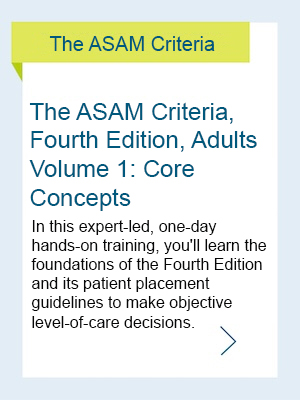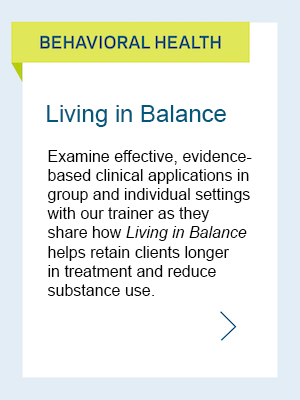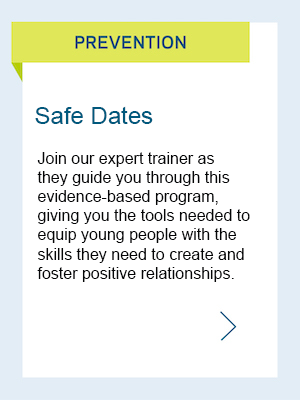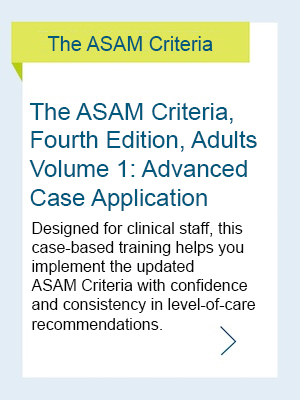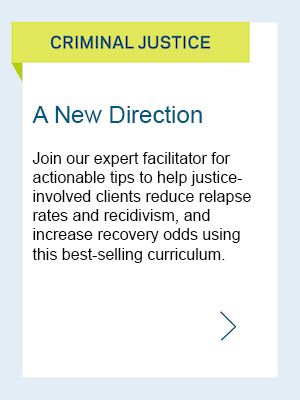Interactive Virtual and In-Person Professional Training
Training Opportunities: Reach More People with the Information, Care and Support They Need
Combine leading evidence-based and research-informed resources, curricula and trainings with your mission to strengthen community prevention, intervention, treatment and recovery solutions. These advanced training opportunities empower you to give people the resources and help they need—when they need it most. Call 1-800-328-9000 to learn more.
Open Enrollment Virtual Trainings: Affordable, Flexible, and Expert-Led: 2026 Opportunities
Looking for a budget-friendly way to grow your skills?
Our Open Enrollment Live Virtual Trainings are the perfect solution. Learn alongside other professionals who are actively implementing some of our most popular and widely used curricula to tackle common, recurring challenges in the field.
Most sessions are offered multiple times throughout the year, giving you flexibility to fit training into your schedule. Explore our current offerings below—and check back often as new dates are added!
Customizable Independent Trainings
Your organization's training requirements don't always coordinate with pre-planned trainings. We're here to take a customized approach to your training needs as an invested partner. Whether you're in health care, the community, education, criminal justice or a government agency, our team is experienced in designing training plans that meet your current needs and future objectives. Additional treatment and recovery training topics are available, contact a sales manager to see full list. Call 1-800-328-9000 to learn more.
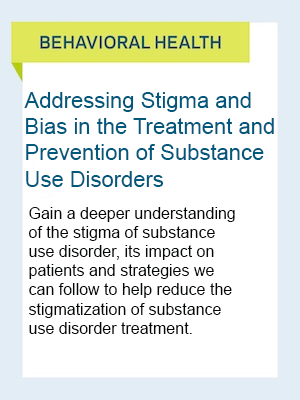
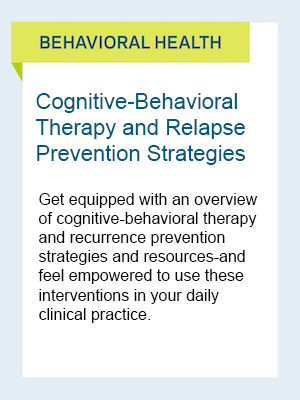
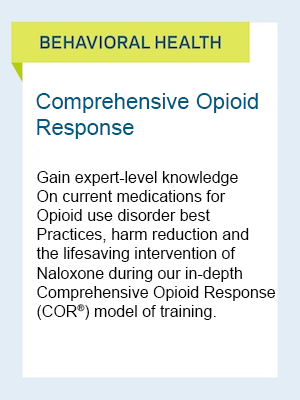
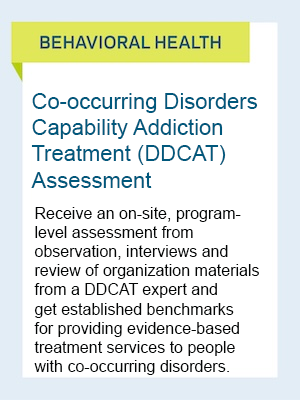
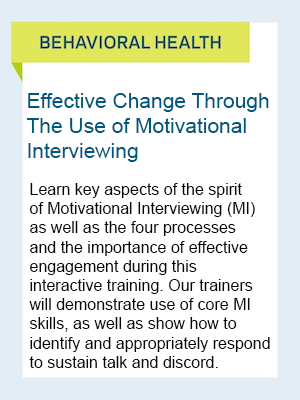
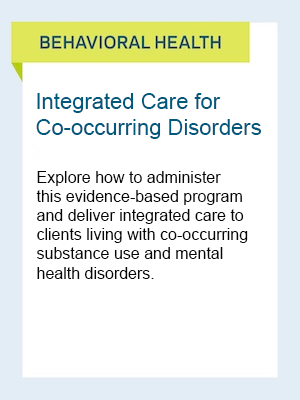
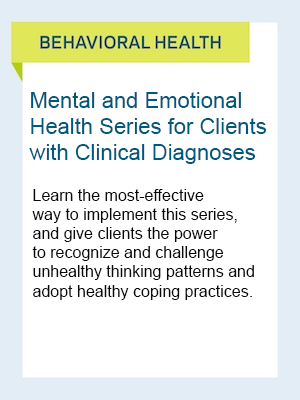
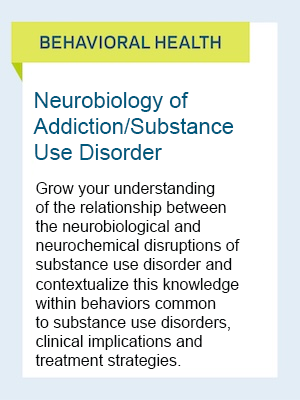
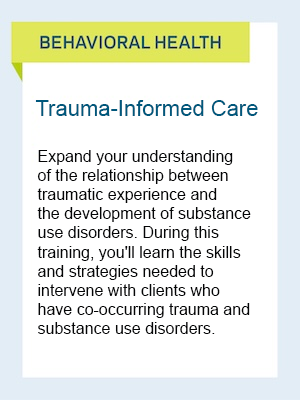
For more information or to schedule a customized training:
Email Consulting and Training Solutions
Trainings are subject to date changes and cancellation. In the case this occurs, our team will contact registered customers.
Recorded Webinars
When trauma happens, it can result in years of mental health and addictive disorders before a person seeks help. How can we as helping professionals transform years of unresolved trauma into a healing experience within a limited number of sessions? LEARN MORE.
Many in the academic and mental health field are predicting that as students return to school in September, an increased number of them will seek or require support from school mental health and resource staff. This informative workshop will provide school staff with a practical and conversational approach to initiating interactions with students about safety and suicide. LEARN MORE.
The majority of people in jails and prisons have substance use disorder, according to the National Institutes of Health. Join us on addressing substance use disorder within justice-involved populations, and learn how to use The Matrix Model for Criminal Justice to reduce recidivism in a virtual environment. LEARN MORE.
Over the past forty years our knowledge of women's lives has increased dramatically, and we have added significantly to our understanding of the treatment needs of women with substance use disorders. Based on the Women's Integrated Treatment model developed by Dr. Covington, this webinar discusses the integration of the foundational theories: addiction, women's psychological development, and trauma. As the creator of the original definition of gender-responsive services, Dr. Covington also shares an updated definition as well as the current knowledge on the relationship between addiction and trauma. Resources for the development of women's services are provided including a discussion of women and The Twelve Steps. LEARN MORE.
This webinar presents a compelling case for including teen dating violence prevention in your school's efforts to improve school climate. Safe Dates, Hazelden Publishing's evidence-based program, has decades of research showing its ability to prevent and reduce teen dating violence by helping students develop skills for building caring and supportive relationships. In the decade since the last edition was published, the use of technology has exploded, gender norms have shifted, and the need for a program that teaches how to build healthy relationships has never been needed more. The third edition of Safe Dates addresses these current issues with a new, inclusive, and up-to-date curriculum. LEARN MORE.
When trauma happens, it can result in years of mental health and addictive disorders before a person seeks help. How can we as helping professionals transform years of unresolved trauma into a healing experience within a limited number of sessions?
In this webinar, Dr. Stephanie Covington, co-author of two brief interventions for men and women, will discuss the most effective therapeutic strategies you can implement when your setting or situation only allows a short amount of time. LEARN MORE.
Ninety percent of justice-involved women have experienced sexual or physical trauma at some point in their lives.¹ Due to the prevalence of this issue and its negative impact on women's health and behavior, it is crucial that we provide evidence-based trauma support to incarcerated women.
Join Dr. Stephanie Covington for a webinar on embracing a gender-responsive and trauma-informed approach to working with justice-involved women. Dr. Covington will also provide recommendations for trauma-specific interventions. LEARN MORE.
Unlike most other emotions, anger is often perceived as negative or destructive. In fact, anger is a healthy emotion that can aid in bringing about healing and hope. People receiving care for substance use disorders and other mental health conditions tend to grapple with the idea of utilizing anger to benefit their recovery process. Join Hazelden Betty Ford clinician Princess Drake, PsyD, to take a closer look at the role of anger in healing. You will gain a better understanding of how to help clients put anger to good use—as an agent of change. LEARN MORE.
Join Hazelden Betty Ford clinician Jeff Stuhmer and interventionist Mark Rose for this information-packed webinar. You will learn how intervention works and what types of resources are most effective. LEARN MORE.
Join David Sherrell of FCD Prevention Works, Heidi Wallace of Hazelden Betty Ford in Oregon and Washington, and research scientist Kate Gliske to take a closer look at how e-cigarettes work, why they're marketed at youth, and why these products pose a particular risk as a gateway to nicotine addiction. LEARN MORE.
Join counselor Kate Roselle to examine how to help the families you serve when adolescent substance use is in the picture, whether services are delivered in-person or virtually. LEARN MORE.
With Stephanie Covington
With a deeper understanding of the impact of trauma, clinicians are more equipped to recognize the unique trauma experiences men face.
LEARN MORE.
How do you continue to create a safe and positive school climate in a virtual environment? Amid the stress and uncertainty surrounding COVID-19, it's never been more critical to stay connected while supporting the social emotional needs of students and educators. LEARN MORE.
Over the past 30 years, we've evaluated the unique treatment needs of women and girls. One dominate and reoccurring theme in the lives of women and girls is the interrelationship between addiction, mental health issues, and interpersonal violence (as well as other traumatic experiences). It's increasingly more important that social service providers are equipped to address trauma with their clients. LEARN MORE.
